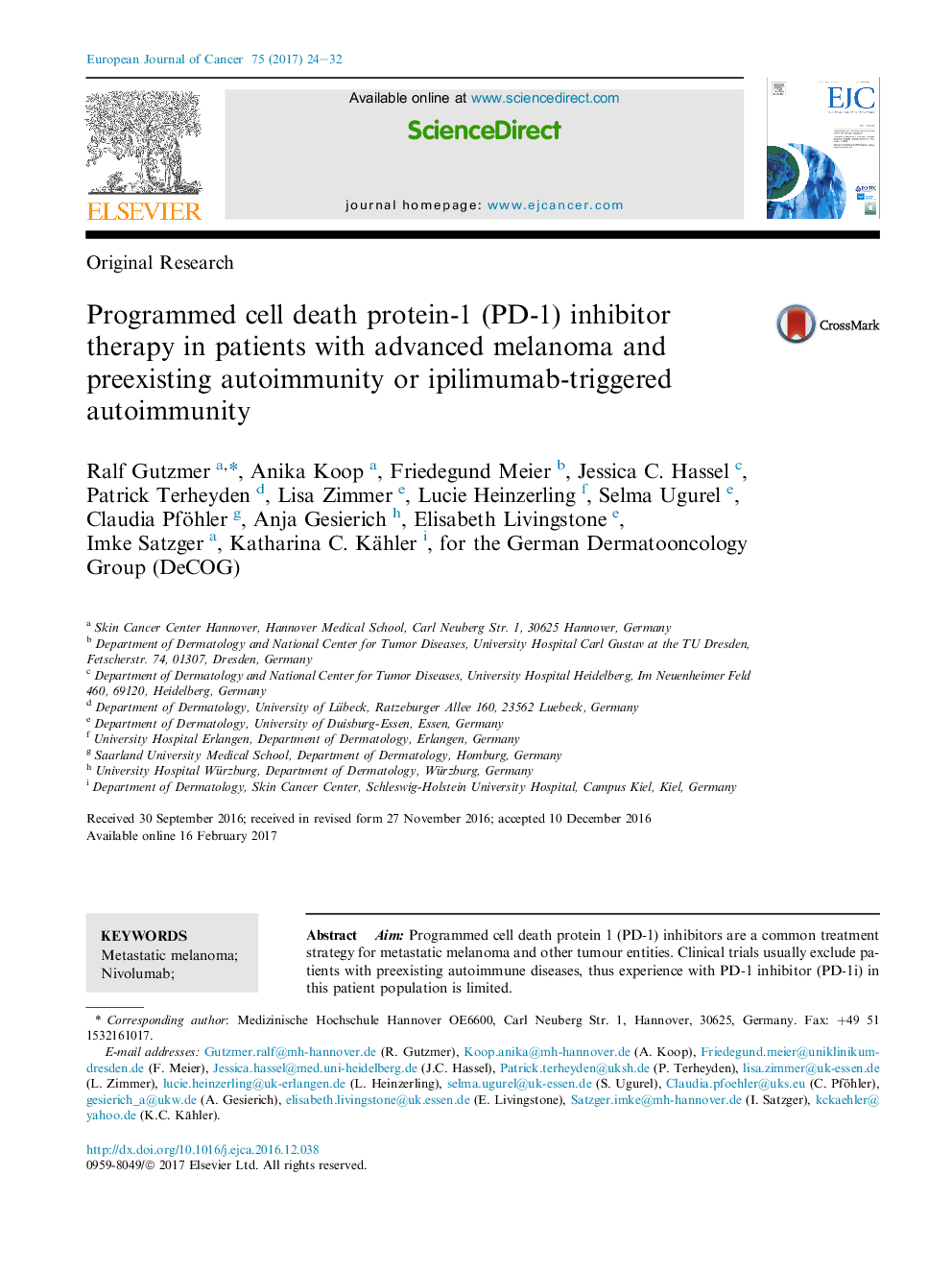| کد مقاله | کد نشریه | سال انتشار | مقاله انگلیسی | نسخه تمام متن |
|---|---|---|---|---|
| 5526254 | 1547057 | 2017 | 9 صفحه PDF | دانلود رایگان |

- Checkpoint inhibitors have become standard of care for patients with advanced melanoma.
- Data on treatment of patients with autoimmune disorders is scarce since they are regularly excluded from clinical trials.
- In 19 patients with preexisting autoimmune disorders, 42% showed a flare of preexisting disorders, and 16% showed new irAE during PD-1i therapy.
- In 22 patients with ipilimumab-triggered irAE, 4.5% of patients showed a flare of these irAE and 23% showed new irAE.
- All flares or new irAE were manageable by immunosuppressive or symptomatic therapy and did not require termination of PD-1i therapy.
AimProgrammed cell death protein 1 (PD-1) inhibitors are a common treatment strategy for metastatic melanoma and other tumour entities. Clinical trials usually exclude patients with preexisting autoimmune diseases, thus experience with PD-1 inhibitor (PD-1i) in this patient population is limited.Patients and methodsMetastatic melanoma patients with preexisting autoimmune disorders or previous ipilimumab-triggered immune-related adverse events (irAE) undergoing treatment with PD-1i from seven German skin cancer centres were evaluated retrospectively with regard to flare of the preexisting autoimmunity and development of new, not preexisting irAE as well as response to PD-1i therapy.ResultsIn total, 41 patients had either preexisting autoimmunity (n = 19, group A, including two patients with additional ipilimumab-triggered autoimmune colitis) or ipilimumab-triggered irAE (n = 22, group B). At PD-1i therapy initiation, six patients in group A and two patients in group B required immunosuppressive therapy. In group A, a flare of preexisting autoimmune disorders was seen in 42% of patients, new irAE in 16%. In group B, 4.5% of patients showed a flare of ipilimumab-triggered irAE and 23% new irAE. All flares of preexisting autoimmune disorders or irAE were managed by immunosuppressive and/or symptomatic therapy and did not require termination of PD-1i therapy. tumour responses (32% in group A and 45% in group B) were unrelated to occurrence of autoimmunity.ConclusionWhile preexisting autoimmunity commonly showed a flare during PD-1i therapy, a flare of ipilimumab-triggered irAE was rare. Response rates were above 30% and unrelated to irAE. PD-1i therapy can be considered in patients with autoimmune disorders depending on severity and activity of autoimmunity.
Journal: European Journal of Cancer - Volume 75, April 2017, Pages 24-32